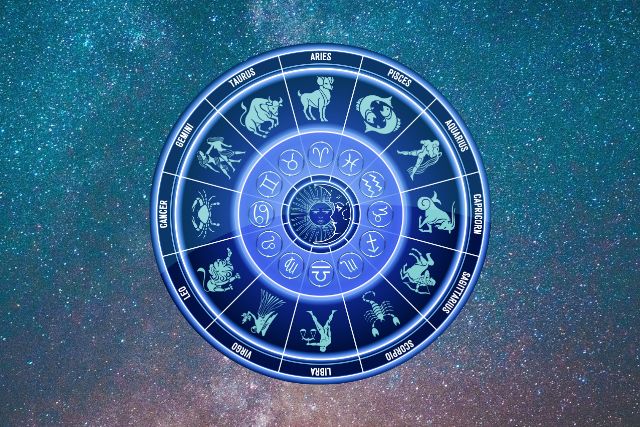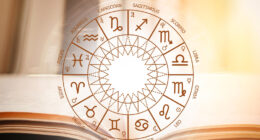Table of Contents
- I. Introduction
- II. The Foundations of Vedic Astrology
- III. Understanding the Cosmic Ecosystem
- IV. The Unique Features of Vedic Astrology
- V. Vedic Astrology and Daily Life
- VI. Cultural Practices and Festivals
- VII. Vedic Astrology in Modern India
- VIII. Critics and Controversies
- IX. To Wrap It Up
- X. Final Thoughts
I. Introduction
A. Brief overview of Vedic Astrology
Vedic Astrology, an ancient Indian wisdom, offers a unique window into your life’s journey. It’s like a cosmic GPS, using the positions of planets at your birth to give insights into your personality, relationships, and life events.
Vedic Astrology, also known as Jyotish Shastra, is a time-honored science that explores how the stars and planets influence our lives. Unlike Western Astrology, it focuses on the exact positions of celestial bodies when you were born. These positions are like a snapshot of the sky, and they hold the key to understanding your unique path in life.
Key Elements of Vedic Astrology:
Your Birth Chart (Janam Kundali): Think of your Janam Kundali as a celestial ID card. It’s a chart created at the moment of your birth that maps the positions of the Sun, Moon, and planets. This chart is like a guidebook to your life’s journey.
The Power of Nine Planets: In Vedic Astrology, there are nine key planets, each with its own personality traits and influences. These planets shape different aspects of your life, from your career and relationships to your health and spirituality.
Dashas and Transits: Life is like a series of chapters, and Vedic Astrology helps you navigate through them. It does this by looking at the periods ruled by specific planets (Dashas) and how they move through the zodiac (Transits).
Remedies for Harmony: Vedic Astrology isn’t just about predictions; it’s about empowerment. It suggests remedies like wearing specific gemstones, chanting mantras, or performing rituals to align yourself with positive energies and overcome challenges.
B. Historical roots and cultural significance in India
Vedic astrology has deep roots in the history and culture of India. Its origins can be traced back over 5,000 years to the ancient scriptures known as the Vedas. These sacred texts formed the cornerstone of Indian philosophy, spirituality, and knowledge.
The Vedic Era: During the Vedic era, sages and scholars delved into the mysteries of the universe. They observed the movements of celestial bodies and their impact on earthly life. This led to the development of Vedic astrology as a system for understanding the cosmic influences on individuals.
The Vedas: The Rigveda, one of the oldest texts in the world, contains hymns that allude to the connection between celestial bodies and human existence. These verses provided the foundational concepts for what would later become Vedic astrology.
The Science of Time: Vedic astrology is often referred to as the “Science of Time” because of its precise calculations and interpretations of planetary positions. It’s believed that the positions of the planets at the time of one’s birth hold vital clues about their life path.
Cultural Significance: Vedic astrology is interwoven with the fabric of Indian culture. It plays a pivotal role in important life events such as marriages, naming ceremonies, and major career decisions. Many families consult Vedic astrologers to ensure auspicious timings for significant milestones.
Cosmic Harmony: The core belief of Vedic astrology lies in the idea of cosmic harmony. It suggests that aligning our actions with the movements of the planets can lead to a more balanced and fulfilling life.
Legacy and Continuity: Across centuries, Vedic astrology has been preserved and passed down through generations. It continues to be a respected and trusted method for guidance and self-discovery in modern India.
Global Influence: In recent times, the wisdom of Vedic astrology has transcended borders and gained recognition worldwide. People from various cultures seek its insights for personal and spiritual growth.
C. Relevance in contemporary times
In our fast-paced, ever-changing world, one might wonder: does ancient wisdom like Vedic astrology still hold relevance in contemporary times? The answer is a resounding yes! Vedic astrology, with its roots deep in Indian culture, continues to offer invaluable insights and guidance for navigating the complexities of modern life.
1. Self-Discovery and Personal Growth:
Now, more than ever, individuals seek to understand themselves on a deeper level. Vedic astrology provides a unique lens through which we can explore our strengths, weaknesses, and life purpose. It serves as a roadmap for personal growth and self-improvement.
2. Coping with Uncertainty:
In a world filled with uncertainties, people often turn to ancient wisdom for solace and direction. Vedic astrology offers a sense of stability by helping individuals anticipate potential challenges and make informed decisions.
3. Balancing Career and Life:
The pursuit of a fulfilling career while maintaining a harmonious personal life is a universal challenge. Vedic astrology provides insights into suitable career paths, auspicious times for job changes, and strategies for achieving work-life balance.
4. Relationships and Compatibility:
Navigating relationships can be complex, but Vedic astrology offers a unique perspective. By examining the compatibility of individuals’ birth charts, it sheds light on communication styles, areas of harmony, and potential challenges in relationships.
5. Health and Wellness:
Maintaining good health is a priority for everyone. Vedic astrology can provide insights into potential health vulnerabilities and suggest remedies or lifestyle changes to promote well-being.
6. Spirituality and Inner Peace:
In a world driven by material pursuits, many seek a deeper connection to their inner selves and a sense of purpose. Vedic astrology offers a pathway to spiritual growth and self-realization, guiding individuals towards a more fulfilling and meaningful life.
7. Empowerment Through Remedies:
Vedic astrology doesn’t stop at predictions; it empowers individuals with practical remedies. These can include wearing specific gemstones, practicing meditation, or engaging in rituals to align with positive cosmic energies.
II. The Foundations of Vedic Astrology
A. Origins in ancient Indian scriptures
Vedic astrology has its origins profoundly rooted in the ancient Indian scriptures. This profound knowledge has been passed down from generation to generation, providing insights into the cosmic influences on human existence. Let’s explore the origins of Vedic astrology and how it arose from the enduring scriptures of ancient India.
1. The Vedas:
The Vedas, ancient Indian scriptures dating back thousands of years, serve as the foundational texts of Indian philosophy, spirituality, and knowledge. Among them, the Rigveda stands as one of the oldest written documents in the world. Within these sacred verses, subtle references to the correlation between celestial movements and human existence can be found, laying the groundwork for what would later become Vedic astrology.
2. The Rigveda and Astronomical Hints:
Although not explicitly labeled as “astrology,” the Rigveda contains hymns that subtly allude to the connection between celestial bodies and earthly life. The precise observations of early sages and scholars regarding the movements of stars and planets played a crucial role in the development of Vedic astrology.
3. Birth of Vedic Astrology:
As the centuries unfolded, the knowledge gleaned from the Vedas evolved into a systematic science known as Vedic astrology. It became a means to decipher the cosmic code, revealing the impact of celestial forces on individual destinies.
4. The Science of Cosmic Harmony:
Vedic astrology, often referred to as the “Science of Time,” emphasizes the intricate dance between celestial bodies and their influence on human affairs. It posits that aligning our actions with the movements of the planets can lead to a more balanced and fulfilling life.
5. Continuity and Cultural Significance:
Vedic astrology became an integral part of Indian culture, influencing various aspects of life, from marriages to major life decisions. Families sought the guidance of skilled astrologers to ensure auspicious timings for important events.
6. Modern Relevance:
Despite the passage of millennia, the wisdom of Vedic astrology remains vibrant and relevant in contemporary times. Its enduring significance is a testament to its timeless insights into the human experience.
B. Integration with Hindu philosophy and spirituality
Vedic Astrology is intricately intertwined with Hinduism’s spiritual and philosophical tenets. This ancient Indian wisdom combines cosmic insights with profound spiritual principles to provide a holistic comprehension of the journey of life. Discover how Vedic Astrology integrates harmoniously with Hindu philosophy and spirituality.
1. The Unity of Microcosm and Macrocosm:
In Hindu philosophy, there’s a fundamental belief in the interconnectedness of all things. Vedic Astrology mirrors this concept by suggesting that the positions of celestial bodies at birth reflect the energies within an individual. It’s a reminder that we are microcosms of the vast cosmic macrocosm.
2. Karma and Cosmic Cycles:
Hinduism emphasizes the concept of karma – the belief that our actions shape our destiny. Vedic Astrology aligns with this principle, suggesting that planetary positions influence our life experiences based on our past actions. It offers a lens through which we can understand the karmic patterns at play in our lives.
3. The Quest for Self-Realization:
Hindu philosophy is rooted in the pursuit of self-realization, seeking to understand our true nature beyond the physical realm. Vedic Astrology acts as a guide in this journey, providing insights into our strengths, weaknesses, and spiritual potential. It encourages individuals to align their actions with their higher purpose.
4. The Role of Dharma:
Dharma, or one’s righteous duty, is a central concept in Hindu philosophy. Vedic Astrology offers guidance in understanding one’s dharma, highlighting the areas of life where an individual is most likely to excel and fulfill their purpose.
5. The Yogas:
In Vedic Astrology, Yogas are specific combinations of planets that indicate particular life situations or traits. These Yogas align with the various paths of yoga outlined in Hindu philosophy, such as Bhakti Yoga (the path of devotion) or Jnana Yoga (the path of knowledge).
6. Moksha and Liberation:
Ultimately, Hindu philosophy seeks liberation from the cycle of birth and death, aiming for union with the divine (Moksha). Vedic Astrology can offer insights into an individual’s spiritual evolution and potential pathways towards this ultimate goal.
7. Rituals and Remedies:
In both Hinduism and Vedic Astrology, rituals and remedies hold significance. They serve as tangible ways to align oneself with higher energies and seek blessings for a harmonious life journey.
C. Connection to the Vedas and cosmic energies
The Vedas, which are considered to be the ancient Indian scriptures, are the foundation of Vedic Astrology. These holy books are the foundation of Indian spirituality and philosophy, and they contain the secrets to comprehending the cosmic forces that mold our existence. Let’s unravel the profound connection between Vedic Astrology, the Vedas, and the boundless cosmic forces.
1. The Vedas:
The Vedas, ancient scriptures dating back over 5,000 years, are the foundational texts of Indian wisdom. Among them, the Rigveda stands as one of the oldest written records in human history. It contains hymns that subtly allude to the interplay between celestial movements and human existence, laying the groundwork for Vedic Astrology.
2. The Cosmic Symphony:
Vedic Astrology views the universe as a magnificent symphony, where each celestial body plays a unique role. It asserts that the positions and movements of these celestial entities influence life on Earth. This cosmic dance forms the backdrop against which individual destinies are woven.
3. Birth Chart:
At the heart of Vedic Astrology lies the Janam Kundali, a celestial map created at the moment of an individual’s birth. This intricate chart maps out the positions of the Sun, Moon, planets, and their interactions, providing a personalized roadmap of life’s journey.
4. Nine Planetary Influencers:
Vedic Astrology recognizes nine key planets, each with its own distinct characteristics and influences. These planets govern various aspects of life, from career and relationships to health and spirituality. Understanding their placements in the birth chart offers profound insights.
5. Cosmic Energies and Life Patterns:
The Vedas teach us that the cosmos is an interconnected web of energies. Vedic Astrology extends this principle to human life, suggesting that our birth chart reflects the cosmic energies at play during our incarnation, influencing our life patterns and experiences.
6. Aligning with Cosmic Forces:
Vedic Astrology offers remedies and practices to align individuals with positive cosmic energies. This can include wearing specific gemstones, chanting mantras, or performing rituals. These remedies aim to harmonize with the natural flow of cosmic forces.
7. Continuity of Ancient Wisdom:
Through the ages, Vedic Astrology has been preserved and passed down through generations. It stands as a living testament to the enduring wisdom of the Vedas and the timeless insights they offer.
III. Understanding the Cosmic Ecosystem
A. The five elements and their influence on human life
Vedic Astrology, a time-honored Indian science, believes that the universe is composed of five fundamental elements – Earth, Water, Fire, Air, and Ether (or Space). These elements not only shape the natural world but also exert a profound influence on human life. Get an understanding of how these elements interact and affect our lives as explained by Vedic Astrology.
1. Earth (Prithvi):
The Earth element represents stability, grounding, and material abundance. In Vedic Astrology, a strong influence of Earth in one’s birth chart can indicate a practical, reliable, and industrious nature. It suggests a deep connection to the physical world and a need for tangible achievements.
2. Water (Jal):
Water symbolizes emotions, intuition, and adaptability. A prominent Water element in the birth chart may suggest a sensitive, empathetic, and nurturing personality. These individuals are often deeply attuned to their feelings and have an intuitive understanding of others.
3. Fire (Agni):
Fire embodies passion, ambition, and transformation. Those with a dominant Fire element in their chart are likely to be energetic, dynamic, and driven. They have a natural inclination towards leadership and often seek to ignite change and growth.
4. Air (Vayu):
Air signifies intellect, communication, and versatility. A strong Air element in the birth chart may indicate a quick, analytical mind and a gift for effective communication. These individuals thrive in environments that stimulate their intellectual curiosity.
5. Ether (Akasha):
Ether, or Space, represents expansion, creativity, and spiritual connection. Individuals with a prominent Ether influence in their chart may possess a deep sense of spirituality, imagination, and a longing for higher knowledge. They often seek to transcend boundaries and explore the deeper mysteries of life.
The Balance of Elements:
In Vedic Astrology, an ideal balance of these elements is considered conducive for overall well-being. An excess or deficiency of any element can manifest in various ways – influencing personality traits, health, and life experiences.
Harmonizing the Elements:
Vedic Astrology provides remedies and practices to harmonize the influence of elements. This may include specific gemstones, mantras, or rituals aimed at aligning an individual’s energies with the cosmic elements.
B. The role of celestial bodies in shaping destinies
In the realm of Vedic Astrology, the movements and positions of celestial bodies are analogous to the conductors of a vast cosmic orchestra, playing a crucial role in determining the destinies of human beings. This ancient Indian science suggests that the configuration of the planets at the time of a person’s birth can have a profound effect on numerous aspects of their lives. Explore how, according to Vedic Astrology, these celestial bodies choreograph the symphony of our existence.
1. Planetary Personalities:
In Vedic Astrology, each planet is believed to possess distinct characteristics and energies. For example, the Sun represents vitality and leadership, while Venus signifies love and creativity. The interactions between these planetary personalities create a unique cosmic signature for each individual.
2. Birth Chart Blueprint:
At the heart of Vedic Astrology lies the Janam Kundali, a celestial map created at the moment of one’s birth. This intricate chart maps out the positions of the Sun, Moon, planets, and their interactions. It serves as a blueprint, providing a personalized guide to an individual’s life journey.
3. Dashas: Cosmic Chapters of Life:
Vedic Astrology divides an individual’s life into distinct chapters, each ruled by a specific planet. These periods, known as Dashas, reveal the ebbs and flows of life’s experiences. Understanding the influence of different planets during specific phases of life is key to navigating one’s journey.
4. Transits: Celestial Movements and Life Events:
The ongoing movements of planets through the zodiac are known as transits. These transits influence different areas of life, triggering significant events and opportunities. A skilled Vedic astrologer can provide valuable insights into how these transits may impact an individual.
5. Cosmic Conversations: Yogas and Planetary Combinations:
Yogas in Vedic Astrology refer to specific planetary combinations that indicate particular life situations or traits. For instance, a Raj Yoga suggests auspicious conditions for success and prosperity, while a Chandra-Mangal Yoga indicates emotional and physical strength.
6. Remedies for Planetary Harmony:
Vedic Astrology doesn’t just offer insights; it provides practical remedies to align oneself with positive cosmic energies. These remedies may include wearing specific gemstones, chanting mantras, or performing rituals. They aim to harmonize with the natural flow of planetary influences.
7. Cosmic Synchronicity and Free Will:
While celestial bodies play a significant role, Vedic Astrology also emphasizes the importance of individual choices and free will. It suggests that by understanding and working with the cosmic energies, individuals can navigate their destinies with greater awareness and purpose.
C. The concept of karma and its interplay with astrology
Alongside the movements of celestial bodies, the concept of karma weaves a profound tapestry within the domain of Vedic Astrology. According to this ancient Indian philosophy, our past and present actions affect the course of our lives. Let’s explore how the interplay of karma and Vedic Astrology shapes our destinies.
1. Karma: The Law of Cause and Effect
Karma, rooted in Hindu philosophy, is the belief that every action has a corresponding consequence. It’s like a cosmic ledger that keeps track of our deeds, shaping our present circumstances and future experiences. Vedic Astrology embraces this concept, recognizing that our birth chart is a reflection of our accumulated karmic imprints.
2. Birth Chart Revelations
Your birth chart, or Janam Kundali, is like a snapshot of the cosmic energies at the time of your birth. It not only reveals the positions of celestial bodies but also provides insights into the karmic imprints you carry from past actions. This chart acts as a roadmap for your life’s journey.
3. Planetary Influences and Karmic Patterns
In Vedic Astrology, the positions and interactions of planets in your birth chart can shed light on your karmic patterns. Certain planetary combinations and alignments may indicate specific karmic influences and life lessons you’re here to learn and overcome.
4. Dashas and Karmic Chapters
Dashas, or planetary periods, unfold in specific sequences throughout your life. Each Dasha is associated with a particular planet and brings its unique karmic influence. Understanding which planet is currently governing your life allows you to discern the prevalent karmic energies at play.
5. Free Will and Karmic Choices
While Vedic Astrology recognizes the influence of karma, it also acknowledges the power of free will. It suggests that while we may have certain karmic predispositions, we have the agency to make choices and shape our own destinies.
6. Remedies and Karmic Alchemy
Vedic Astrology offers remedies to mitigate challenging karmic influences and enhance positive ones. These remedies can include wearing specific gemstones, performing rituals, or chanting mantras. By aligning with these practices, individuals seek to harmonize their energies with the cosmic flow.
7. The Evolutionary Journey
Ultimately, the interplay of karma and Vedic Astrology invites individuals on a journey of self-awareness and spiritual growth. It encourages us to understand and transcend our karmic patterns, leading us towards higher states of consciousness and enlightenment.
IV. The Unique Features of Vedic Astrology
A. Divisional Charts (Vargas): A deeper dive into individual aspects of life
In the realm of Vedic Astrology, Divisional Charts, also known as Vargas, play a crucial role in providing deeper insights into various aspects of an individual’s life. These specialized charts act as magnifying glasses, allowing astrologers to focus on specific areas with greater precision. Let’s take a closer look at Divisional Charts and how they illuminate distinct facets of life.
1. Understanding Divisional Charts:
Divisional Charts are like specialized lenses that offer a magnified view of specific aspects of a person’s life. They are derived from the main birth chart and provide detailed information about particular areas such as career, marriage, spirituality, and more.
2. Birth Chart vs. Divisional Charts:
While the birth chart (Janam Kundali) provides a holistic overview, Divisional Charts zoom in on specific domains. For example, the Navamsa Chart, derived from the main chart, focuses on marriage and partnerships. Each Divisional Chart hones in on a particular aspect of life.
3. Significance of Specific Divisional Charts:
- Navamsa (D-9) Chart: This chart is pivotal for understanding marriage, partnerships, and the overall quality of relationships. It reveals the deeper dynamics and soul connections between individuals.
- Drekkana (D-3) Chart: It sheds light on siblings, courage, and inherent abilities. This chart is instrumental in understanding a person’s communication style and relationship with siblings.
- Dwadashamsa (D-12) Chart: This chart offers insights into parental relationships, spiritual inclinations, and the potential for spiritual growth and enlightenment.
- Chaturthamsa (D-4) Chart: It delves into aspects related to real estate, property, and one’s homeland. This chart provides valuable insights for matters concerning home and family.
4. Interpreting Divisional Charts:
Astrologers examine the Divisional Charts in conjunction with the birth chart to gain a comprehensive understanding of a person’s life. They look for key planetary placements, aspects, and conjunctions within these charts to draw meaningful conclusions.
5. Remedies and Guidance:
If challenges or imbalances are identified in specific areas of life through Divisional Charts, Vedic Astrology offers remedies. These can range from wearing specific gemstones to performing rituals and mantras to harmonize the energies.
6. Personalized Insights and Clarity:
Divisional Charts provide a more nuanced and personalized view of an individual’s life. They allow for targeted guidance and predictions in specific areas, offering a deeper level of clarity and understanding.
B. Dasha System: Unveiling life’s chapters through planetary periods
The Dasha System acts as a guiding light within the realm of Vedic Astrology, illuminating the various chapters of an individual’s life. According to this ancient Indian philosophy, each period of existence is influenced by particular planetary energies. Let’s unravel the significance of the Dasha System and how it unveils the tapestry of our existence.
1. Understanding the Dasha System:
The Dasha System is a cornerstone of Vedic Astrology. It divides an individual’s life into distinct periods, each ruled by a specific planet. These periods unfold in a predetermined sequence, revealing the ebb and flow of life’s experiences.
2. Planetary Periods:
Each period, or Dasha, is associated with a particular planet. For example, the Vimshottari Dasha System, the most widely used, encompasses a cycle of major planetary periods ranging from 6 to 20 years. The sequence begins with the Dasha of the Moon, followed by the Dasha of other planets in a set order.
3. Influence on Life Events:
During each Dasha period, the ruling planet exerts a significant influence on various aspects of life. It can shape experiences related to career, relationships, health, and more. Understanding which planet is governing a specific period provides valuable insights into prevailing energies.
4. Antardasha: Sub-Periods within Dasha:
Within each major Dasha period, there are sub-periods known as Antardashas. These sub-periods are ruled by different planets and offer more detailed insights into specific phases within the overarching Dasha.
5. Predictions and Guidance:
Astrologers use the Dasha System to make predictions and provide guidance. By analyzing the current Dasha and Antardasha periods, they can offer insights into potential life events, opportunities, and challenges.
6. Karmic Influence:
The Dasha System is intricately linked with the concept of karma. It suggests that the planetary periods are a reflection of the karmic energies at play during specific phases of life. This karmic influence can shape experiences and outcomes.
7. Remedies and Alignment:
If a challenging Dasha period is indicated, Vedic Astrology offers remedies to mitigate negative influences and enhance positive ones. These remedies may include wearing specific gemstones, performing rituals, or chanting mantras, aiming to harmonize with prevailing energies.
C. Nakshatras: The influence of lunar constellations on personality and destiny
Nakshatras hold a special position in the realm of Vedic Astrology, as they provide unique insights into an individual’s personality, strengths, and life path. These lunar constellations, also known as lunar mansions, have a profound effect on our destinies. Let’s dive into the world of Nakshatras and understand how they shape our lives.
1. What are Nakshatras?
Nakshatras are specific sectors of the sky, each occupied by a group of stars. There are a total of 27 Nakshatras, and they hold symbolic and astrological significance. They are considered the foundation of the lunar zodiac in Vedic Astrology.
2. Lunar Influence on Personality:
The Nakshatra occupied by the Moon at the time of one’s birth is believed to have a profound influence on their personality and temperament. It provides insights into an individual’s emotional nature, instincts, and core characteristics.
3. Nakshatras and Vedic Astrology:
Nakshatras are a fundamental component of Vedic Astrology, often used in conjunction with other astrological elements. They add depth and nuance to astrological interpretations, offering a more comprehensive understanding of an individual’s chart.
4. Unique Traits and Characteristics:
Each Nakshatra is associated with specific qualities, deities, and planetary influences. For example, Rohini Nakshatra is linked to the creative and nurturing energies of the Moon, while Ashwini Nakshatra is associated with the dynamic and initiatory forces of Ketu.
5. Life Path and Destiny:
The Nakshatra occupied by the Moon at birth provides insights into an individual’s life path and purpose. It offers clues about their strengths, challenges, and potential areas of growth. Understanding one’s Nakshatra can be a guiding light in navigating life’s journey.
6. Nakshatras and Compatibility:
In Vedic Astrology, Nakshatras are also considered in matters of compatibility, especially in relationships and marriages. Matching Nakshatras can provide insights into the harmonious dynamics between individuals.
7. Nakshatras and Remedies:
If a challenging Nakshatra placement is identified, Vedic Astrology offers remedies to mitigate negative influences and enhance positive ones. These remedies may include wearing specific gemstones, performing rituals, or chanting mantras.
V. Vedic Astrology and Daily Life
A. Birth Chart Analysis: Understanding one’s cosmic blueprint
In Vedic Astrology, a Birth Chart, also known as Janam Kundali, is a cosmic blueprint that provides insight into an individual’s life path, inclinations, and potential. The horoscope is a depiction of the celestial positions at the time of a person’s birth and offers profound insights into various aspects of life. Let’s explore the significance of Birth Chart Analysis in Vedic Astrology.
1. The Birth Chart: Your Celestial Roadmap
A Birth Chart is a snapshot of the positions of the Sun, Moon, planets, and other celestial bodies at the precise moment of your birth. It’s like a snapshot of the cosmic energies that were in play when you entered the world.
2. The Building Blocks: Planets, Houses, and Signs
The Birth Chart consists of planets, houses, and signs. Each planet represents different aspects of your personality and life. Houses indicate specific areas of life (like career, relationships, etc.), and signs influence how these energies manifest.
3. Understanding Planetary Influences
Each planet in your Birth Chart has a unique influence on your life. For instance, the Sun represents your core essence and individuality, while Venus influences love and relationships. The arrangement of these planets offers insights into your strengths, challenges, and opportunities.
4. The Ascendant: Your Rising Self
The Ascendant, or Rising Sign, is a crucial aspect of the Birth Chart. It represents the mask you wear and how others perceive you. It’s determined by the zodiac sign that was rising on the eastern horizon at the time of your birth.
5. Aspects and Alignments: Cosmic Conversations
Planets form relationships with one another through aspects. These interactions reveal how different parts of your personality work together or create challenges. Positive aspects can indicate harmony, while challenging aspects may point to areas of growth.
6. Life Phases: Dashas and Transits
Vedic Astrology also considers planetary periods (Dashas) and movements through the zodiac (Transits). These factors influence the timing of events and experiences in your life. Understanding these cycles provides insights into the timing of opportunities and challenges.
7. Guidance and Remedies
A Birth Chart Analysis doesn’t just reveal traits and tendencies; it also offers guidance and remedies. These can include wearing specific gemstones, practicing meditation, or engaging in rituals to align with positive cosmic energies.
B. Life Events and Transits: How celestial movements impact our journey
The movements of celestial bodies have a tremendous impact on the trajectory of our lives, according to Vedic Astrology. These cosmic dances, known as transits, have a significant impact on our life’s journey. Let’s study the impact of transits on life events and how they guide us through the various chapters of our lives.
1. Understanding Celestial Transits:
Transits refer to the ongoing movements of planets through the zodiac. They create dynamic energy patterns that influence various aspects of life. These transits provide a roadmap for the unfolding of events and experiences.
2. Influence of Planetary Energies:
Each planet has its own unique energies and qualities. As they move through the zodiac, they interact with the positions of planets in our birth chart. This interaction creates a dynamic interplay of energies that can manifest in different ways in our lives.
3. Timing of Significant Events:
Transits are instrumental in determining the timing of significant life events. For example, a favorable transit of Jupiter over a specific area of your birth chart may signal a period of growth, expansion, or opportunity in that area of life.
4. Retrograde Motion: A Cosmic Pause:
Planets sometimes appear to move backward in their orbit, a phenomenon known as retrograde motion. When a planet is retrograde, its energies are turned inward, prompting introspection and review. Retrogrades often bring opportunities for revisiting and reevaluating certain life areas.
5. Eclipses: Cosmic Turning Points:
Eclipses, both solar and lunar, are powerful celestial events that mark significant turning points in our lives. They often coincide with major life changes, revelations, and shifts in consciousness.
6. Planetary Aspects: Celestial Conversations:
Transiting planets form aspects, or angular relationships, with planets in our birth chart. These conversations between planets can trigger events, opportunities, or challenges, depending on the nature of the aspect.
7. Guidance in Navigating Life’s Currents:
By understanding the influence of transits, individuals can gain valuable insights into the timing of events and make more informed decisions. Astrologers use transits to offer guidance on how to navigate the energies effectively and make the most of opportunities.
C. Remedies and Solutions: Mitigating negative planetary influences
In the tapestry of Vedic Astrology, remedies and solutions serve as powerful tools to harmonize the influence of planetary energies. These practices are designed to mitigate negative influences and enhance positive ones, ultimately promoting balance and well-being. Let’s explore the significance of remedies in Vedic Astrology and how they offer pathways to navigate life’s challenges.
1. Understanding Remedies in Vedic Astrology:
Remedies in Vedic Astrology are practical actions and practices aimed at aligning oneself with positive cosmic energies and mitigating the impact of challenging planetary influences. They are based on the belief that by taking conscious steps, individuals can harmonize with the natural flow of cosmic forces.
2. Gemstone Therapy:
Specific gemstones are associated with different planets and their energies. Wearing a gemstone corresponding to a beneficial planet can enhance its positive influence in your life. For example, wearing a blue sapphire can strengthen the influence of Saturn, promoting discipline and focus.
3. Mantras and Chants:
Sanskrit mantras are vibrational sounds that resonate with specific planetary energies. Regular chanting of these mantras is believed to invoke the positive qualities of the associated planet. For instance, chanting the “Om Namah Shivaya” mantra is associated with invoking the energy of Lord Shiva, who rules over transformative processes.
4. Rituals and Pujas:
Performing specific rituals and pujas (ceremonial worship) can be a powerful way to seek blessings and align with positive cosmic energies. These rituals are often conducted by trained priests or astrologers and involve offerings, prayers, and sacred ceremonies.
5. Yantras and Talismans:
Yantras are geometric symbols that represent specific energies. They can be used as tools for meditation and focus to enhance the positive influence of a particular planet. Talismans, on the other hand, are objects that are energetically charged to provide protection and support.
6. Fire Ceremonies (Homas):
Homas involve the ceremonial offering of various substances into a consecrated fire while reciting specific mantras. This practice is believed to purify and balance energies, creating a harmonious environment.
7. Fasting and Charity:
Observing specific fasting days and engaging in acts of charity are considered powerful remedies. Fasting is believed to purify the body and mind, while charity is seen as a way to balance negative karma and receive blessings.
VI. Cultural Practices and Festivals
A. Role of astrology in Indian ceremonies and rituals
In India, the rich tapestry of traditions, ceremonies, and rituals is intricately interwoven with the profound insights of Vedic Astrology. This ancient science plays a pivotal role in guiding and enhancing the significance of various life events. Let’s explore how Vedic Astrology influences and enriches Indian ceremonies and rituals.
1. Auspicious Timing (Muhurat):
Vedic Astrology provides the auspicious timings, known as Muhurat, for performing ceremonies and rituals. It considers planetary positions and alignments to ensure that the energies are in harmony, creating a conducive environment for the event.
2. Birth Ceremonies (Namkaran):
The naming ceremony of a newborn is a significant event in Indian culture. Vedic Astrology is consulted to suggest names that resonate with the child’s birth chart, ensuring a positive influence on their life path.
3. Marriage (Vivaha):
Matching the birth charts (Kundali Milan) of prospective partners is a crucial step in Indian marriages. Vedic Astrology provides insights into compatibility, potential challenges, and areas of harmony between the couple.
4. Griha Pravesh (Housewarming):
Before moving into a new home, a Griha Pravesh ceremony is performed. Vedic Astrology is consulted to determine the most auspicious date and time, aligning the energies for prosperity and harmony in the new abode.
5. Annaprashan (First Feeding):
When an infant starts solid food, an Annaprashan ceremony is held. The timing of this event is chosen with the guidance of Vedic Astrology to ensure the child’s health and well-being.
6. Yagnas and Homas:
Yagnas and Homas are fire ceremonies performed to invoke specific energies for various purposes, such as prosperity, health, and spiritual growth. Vedic Astrology determines the most propitious times for conducting these ceremonies.
7. Festivals and Celebrations:
The timing of major festivals and celebrations in India, such as Diwali and Navaratri, is determined with the help of Vedic Astrology. This ensures that the energies during these events are conducive for spiritual growth and auspiciousness.
8. Remedies and Enhancements:
If there are challenging planetary influences in a birth chart, specific remedies suggested by Vedic Astrology may be incorporated into ceremonies. This can include wearing gemstones, performing rituals, and chanting mantras.
B. Festivals dedicated to celestial events (e.g., Navaratri, Makar Sankranti)
A tapestry of vibrant festivals celebrates the celestial dance of planets and stars in India. These festivals, deeply rooted in ancient wisdom, mark significant astronomical events. Explore some of these joyous occasions that bridge the gap between the earthly and the celestial.
1. Navaratri: Dancing to the Rhythms of the Cosmos
Navaratri, meaning “nine nights,” is a grand celebration dedicated to the goddess Durga. It coincides with the equinoxes and celebrates the cosmic balance between day and night. The festival is observed through dance, music, and fasting, symbolizing the triumph of good over evil.
2. Diwali: The Festival of Lights and New Beginnings
Diwali, also known as the Festival of Lights, is celebrated to honor the return of Lord Rama after defeating Ravana. Its timing aligns with the new moon, signifying the victory of light over darkness. Homes are adorned with lamps, and fireworks light up the night sky.
3. Makar Sankranti: Embracing the Sun’s Transition
Makar Sankranti marks the Sun’s transition into the zodiac sign of Capricorn. It symbolizes the shift from longer nights to longer days. Kite flying, a popular tradition, reflects the desire to break free from limitations and soar towards new heights.
4. Pongal: Harvesting Gratitude under the Sun’s Warmth
Pongal is a harvest festival celebrated in South India. It coincides with the Sun’s transition into the zodiac sign of Capricorn. Families gather to cook a special dish also called Pongal, made from freshly harvested rice, expressing gratitude for nature’s bounty.
5. Gudi Padwa: Welcoming the New Year with Celestial Blessings
Gudi Padwa, celebrated in Maharashtra, marks the beginning of the Hindu New Year. It coincides with the Spring Equinox when day and night are of equal length. A Gudi, symbolizing victory and prosperity, is hoisted to invite auspicious energies.
6. Chhath Puja: Honoring the Life-Giving Sun
Chhath Puja is dedicated to the Sun God and is celebrated in North India. It aligns with the winter solstice, acknowledging the Sun’s role in sustaining life. Devotees perform rigorous rituals, including standing in water and offering prayers to the setting and rising Sun.
7. Karva Chauth: Fasting for Spousal Harmony
Karva Chauth is a fasting ritual observed by married Hindu women. It aligns with the fourth day after the full moon in the month of Kartik. Women fast for their husbands’ well-being, breaking their fast only after sighting the Moon.
C. Astrological guidance for important life events (e.g., marriage, childbirth)
Vedic Astrology offers profound insights and guidance for crucial life events. It’s like having a celestial roadmap, providing clarity and direction. Learn how Vedic Astrology lends its wisdom to pivotal moments like marriage, childbirth, and other special events.
1. Marriage and Vedic Astrology:
In Vedic Astrology, the union of two souls is a deeply significant event. By analyzing the birth charts (Kundali Milan) of prospective partners, astrologers offer insights into compatibility, potential challenges, and areas of harmony. This guidance helps individuals make informed decisions about their life partners.
2. Auspicious Timings (Muhurat):
Choosing the right moment for a wedding is paramount. Vedic Astrology provides auspicious timings, known as Muhurat, to ensure that the celestial energies are in alignment with the couple’s union. This harmonious start sets the tone for a blessed journey together.
3. Childbirth and Astrological Guidance:
The birth of a child is a momentous occasion. Vedic Astrology can offer insights into the child’s potential strengths, challenges, and life path. By studying the child’s birth chart, parents can gain a deeper understanding of their little one’s unique nature.
4. Naming Ceremony (Namkaran):
The act of naming a newborn is infused with significance. Vedic Astrology can suggest names that resonate with the child’s birth chart, aligning them with positive energies and potential for growth and prosperity.
5. Fertility and Planetary Influences:
For couples facing challenges in conceiving, Vedic Astrology can offer insights into the astrological factors at play. By understanding these influences, remedies and solutions can be suggested to help improve fertility and create a more conducive environment for conception.
6. Remedies for Harmonious Beginnings:
If challenging planetary placements are identified in the birth charts of couples or newborns, Vedic Astrology offers remedies. These can include wearing specific gemstones, performing rituals, and chanting mantras. These practices aim to harmonize energies and promote well-being.
7. Navigating Life’s Journey:
Vedic Astrology is not about determining a fixed destiny, but rather providing guidance and insights to navigate life’s journey. It empowers individuals to make informed choices and take proactive steps towards a more harmonious and fulfilling future.
VII. Vedic Astrology in Modern India
A. Integration with contemporary lifestyles and professions
Vedic Astrology seamlessly integrates with modern lifestyles and professions. Its timeless wisdom offers invaluable insights, guiding individuals towards success and fulfillment in today’s fast-paced world. Let’s explore how Vedic Astrology harmonizes with contemporary vocations.
1. Career Guidance and Astrological Insights:
Vedic Astrology provides valuable insights into career choices. By analyzing the birth chart, astrologers can identify one’s inherent talents, strengths, and potential career paths. This guidance helps individuals make informed decisions about their professional pursuits.
2. Entrepreneurship and Business Success:
For entrepreneurs, Vedic Astrology offers strategic insights. It can indicate auspicious times for business ventures, helping to launch them on a prosperous trajectory. Additionally, understanding the favorable planetary positions can aid in making crucial business decisions.
3. Personal Development and Growth:
In today’s competitive world, personal development is key. Vedic Astrology can identify areas for self-improvement and growth based on the planetary influences in one’s birth chart. This self-awareness is invaluable for achieving professional success and personal fulfillment.
4. Stress Management and Well-being:
Modern professions often come with high levels of stress. Vedic Astrology offers remedies and practices to alleviate stress and promote well-being. These can include wearing specific gemstones, practicing meditation, and adopting a balanced lifestyle.
5. Relationship Dynamics in Professional Settings:
Understanding the dynamics of relationships in the workplace is crucial. Vedic Astrology can provide insights into how individuals interact and collaborate with colleagues and superiors. This awareness fosters harmonious work environments.
6. Time Management and Productivity:
Efficient time management is vital in contemporary professions. Vedic Astrology, through Muhurat (auspicious timing), aids in planning and decision-making. It helps individuals utilize their time effectively, leading to increased productivity.
7. Career Transitions and New Beginnings:
Changing careers or embarking on new professional journeys can be daunting. Vedic Astrology offers guidance on auspicious timings for such transitions. It ensures that individuals step into their new roles with positive cosmic energies.
B. Popularity and accessibility of astrologers and astrology services
Vedic Astrology has experienced a resurgence in popularity, driven by its profound insights and relevance in today’s fast-paced world. With advancements in technology and a growing interest in holistic well-being, astrology services have become increasingly accessible. Know how Vedic astrologers and their services have gained prominence in the modern era.
1. Online Presence and Global Reach:
Vedic astrologers have embraced the digital age, establishing a strong online presence through websites, social media, and dedicated platforms. This has expanded their reach beyond geographical boundaries, making their services accessible to a global audience.
2. Personalized Consultations and Guidance:
Modern individuals seek personalized guidance to navigate life’s challenges. Vedic astrologers offer one-on-one consultations, providing tailored insights based on the individual’s birth chart. This personalized approach resonates with people seeking clarity and direction.
3. Holistic Well-being and Life Coaching:
Vedic astrology goes beyond mere predictions; it encompasses holistic well-being. Astrologers often incorporate practices like meditation, gemstone recommendations, and lifestyle adjustments to promote balance and harmony in individuals’ lives.
4. Integration with Modern Lifestyles:
Vedic astrologers understand the demands of contemporary living. They offer practical advice that aligns with modern lifestyles, helping individuals make informed decisions about career, relationships, health, and personal development.
5. Compatibility and Relationship Guidance:
In a rapidly changing world, relationships play a crucial role. Vedic astrologers provide insights into compatibility, helping individuals form meaningful connections in both personal and professional spheres.
6. Specialized Services for Different Needs:
Astrology services have diversified to cater to specific needs. This includes services like career guidance, marriage compatibility analysis, financial predictions, and even specialized consultations for health and well-being.
7. Workshops, Webinars, and Educational Content:
Vedic astrologers often conduct workshops, webinars, and share educational content online. This not only spreads awareness about the science but also empowers individuals to gain a deeper understanding of their own charts.
8. Scientific and Ethical Practice:
With a growing interest in astrology, practitioners are emphasizing the importance of ethical and scientifically-grounded approaches. Vedic astrologers strive for accuracy and objectivity in their readings, building trust with their clients.
VIII. Critics and Controversies
A. Skepticism and debates surrounding Vedic Astrology
Vedic Astrology has garnered both ardent followers and skeptical critics. This dynamic has sparked debates about the validity and relevance of astrology in the modern world. Let’s delve into the skepticism and the various perspectives surrounding Vedic Astrology.
1. Scientific Skepticism:
Many skeptics question the scientific basis of astrology. They argue that the positions of celestial bodies at the time of one’s birth cannot possibly influence human behavior or destiny. The lack of empirical evidence that directly correlates celestial movements with human experiences fuels this skepticism.
2. Confirmation Bias and Generalizations:
Critics often point out that astrological readings can be vague and open to interpretation. They argue that individuals may tend to perceive vague statements as accurate due to confirmation bias, where people seek out information that confirms their existing beliefs.
3. Cultural Variations and Interpretations:
Skepticism also arises from the diversity of astrological practices around the world. Different cultures have their own astrological systems, which can lead to conflicting interpretations and predictions. Critics question the universality of astrological claims in light of these variations.
4. Over-reliance on Predictions:
Some critics argue that people may become overly reliant on astrological predictions, potentially abdicating personal responsibility for their choices and actions. This can lead to a fatalistic mindset, where individuals believe that their fate is entirely predetermined by the stars.
5. Lack of Consistency in Practitioners:
Skepticism can also arise from inconsistencies among astrologers. Different practitioners may provide varying interpretations for the same birth chart, leading to confusion and doubt about the accuracy of astrological insights.
6. Potential for Exploitation:
Critics express concern about unscrupulous individuals who may take advantage of people’s beliefs in astrology for financial gain. They caution against relying on astrologers who may lack genuine expertise or integrity.
7. Openness to Interpretation:
Supporters of Vedic Astrology acknowledge that interpretations can vary among practitioners. They argue that this diversity allows for a more nuanced and personalized approach, tailoring advice to the unique circumstances and needs of each individual.
B. The importance of discernment in seeking astrological guidance
In the pursuit of astrological insights, discernment plays a pivotal role in ensuring that the guidance received is meaningful and beneficial. Learn why discernment is of utmost importance when seeking astrological advice.
1. Understanding the Nature of Astrology:
Astrology is a complex and ancient science that involves interpreting celestial positions and their influence on human lives. It’s important to approach it with a discerning mind, recognizing that while it can offer valuable insights, it’s not a definitive blueprint for life.
2. Recognizing the Limits of Astrology:
Discernment involves acknowledging that astrology is just one tool among many for self-discovery and guidance. It should not replace critical thinking, personal responsibility, or professional advice in important life decisions.
3. Distinguishing Between Guidance and Determinism:
Astrology provides guidance based on cosmic energies, but it doesn’t dictate a fixed destiny. Discernment helps in understanding that while planetary influences can offer insights, individuals have the power to shape their own paths through choices and actions.
4. Vetting Astrologers and Practitioners:
Not all astrologers are equally skilled or ethical. Discernment entails researching and selecting a reputable and experienced astrologer. Reading reviews, checking credentials, and seeking recommendations can help in making an informed choice.
5. Avoiding Fatalism and Fear-Based Readings:
A discerning approach means not falling into the trap of fatalistic readings that instill fear or dependency. Ethical astrologers empower individuals to make informed decisions, rather than fostering a sense of helplessness.
6. Embracing Empowerment and Personal Growth:
Discernment allows individuals to use astrological insights as tools for personal growth and self-awareness. It’s about using the guidance to enhance one’s understanding of themselves and their life path, rather than feeling confined by it.
7. Balancing Intuition with Astrological Insights:
Astrology provides a structured framework, but discernment encourages individuals to trust their own intuition and inner wisdom. It’s about finding a harmonious balance between external guidance and internal knowing.
IX. To Wrap It Up
A. Recap of the significance of Vedic Astrology in Indian culture
Vedic Astrology, an ancient science steeped in tradition, holds a profound significance in Indian culture. Its influence permeates various aspects of life, shaping beliefs, decisions, and rituals. Let’s recap the importance of Vedic Astrology in the rich tapestry of Indian heritage.
1. Guiding Life’s Journey:
Vedic Astrology is viewed as a guiding light, offering insights into the cosmic forces that influence human existence. It provides a roadmap to navigate life’s complexities, aiding individuals in making informed choices.
2. Astrology and Indian Scriptures:
Found in revered texts like the Vedas, Puranas, and Upanishads, Vedic Astrology is an integral part of India’s spiritual and philosophical heritage. It aligns with the belief in interconnectedness and the cyclical nature of life.
3. Role in Important Life Events:
From naming ceremonies to weddings and even business ventures, Vedic Astrology plays a crucial role in determining auspicious timings. This ensures that significant life events are aligned with favorable cosmic energies.
4. Marriage and Compatibility:
In Indian culture, marriage is considered a sacred union. Vedic Astrology, through Kundali Milan (matching birth charts), assesses the compatibility between couples, promoting harmonious relationships.
5. Festivals and Celestial Alignments:
Many Indian festivals are timed to coincide with specific celestial events. For instance, Diwali celebrates the triumph of light over darkness, aligning with the new moon.
6. Ayurveda and Astrology:
Ayurveda, India’s ancient system of medicine, is closely intertwined with astrology. Astrological insights are used to identify health imbalances and prescribe remedies for physical and mental well-being.
7. Cultural Rituals and Remedies:
Astrological remedies, like wearing specific gemstones or performing rituals, are integrated into Indian customs. These practices are believed to harmonize energies and mitigate negative influences.
8. Spiritual Growth and Karma:
Vedic Astrology emphasizes the spiritual journey and the interplay of karma (actions) with cosmic energies. It encourages individuals to seek self-realization and align with higher consciousness.
9. Influence on Art and Architecture:
Vedic principles, including astrology, have influenced Indian art, architecture, and even town planning. The positioning of temples and structures often aligns with cosmic energies.
10. Modern Relevance and Global Influence:
In the modern era, Vedic Astrology continues to thrive. Its wisdom resonates not only in India but also globally, with people seeking its insights for personal growth and spiritual development.
B. Acknowledging its role in shaping cultural identities and spiritual pursuits
Vedic Astrology has left an indelible mark on cultural identities and spiritual pursuits. Its profound insights into the cosmic dance of planets have shaped beliefs, practices, and philosophies for centuries. Its influence extends far beyond borders, offering a timeless and universal path for seekers to navigate the cosmic tapestry of existence. In acknowledging its role, individuals find a deeper connection to their cultural heritage and a clearer path on their spiritual journey.
Discover how Vedic Astrology continues to play a pivotal role in these aspects of life.
1. Cultural Identities and Vedic Wisdom:
Vedic Astrology is deeply interwoven with the cultural fabric of India. It influences naming conventions, marriage rituals, and even the timing of festivals. This ancient science reflects the enduring respect for cosmic forces in defining cultural practices.
2. Spiritual Quests and Cosmic Alignments:
For seekers on spiritual journeys, Vedic Astrology serves as a guiding light. It offers insights into the soul’s purpose, karmic patterns, and optimal paths for spiritual growth. Astrological guidance becomes a compass for those seeking higher truths.
3. Temple Architecture and Sacred Spaces:
The principles of Vedic Astrology have influenced the construction of temples and sacred spaces. The alignment of architectural elements often mirrors cosmic energies, creating environments conducive to spiritual contemplation and transcendence.
4. Yoga and Astrological Influences:
The practice of yoga, deeply ingrained in Indian spirituality, aligns with Vedic Astrology. Certain yogic practices and postures are believed to resonate with specific planetary energies, enhancing their transformative effects on the practitioner.
5. Ayurveda and Astrological Balance:
Ayurveda, India’s ancient system of medicine, acknowledges the influence of planetary energies on physical and mental health. Vedic Astrology provides insights into an individual’s constitutional makeup, guiding Ayurvedic treatments for holistic well-being.
6. Rites of Passage and Cosmic Timing:
From birth ceremonies to rites of passage, Vedic Astrology determines auspicious timings. This ensures that significant life events are aligned with cosmic energies, inviting blessings and harmonious transitions.
7. Divination and Spiritual Guidance:
Astrology serves as a tool for divination, offering insights and answers to profound existential questions. Seekers turn to astrologers for clarity on life’s purpose, challenges, and opportunities for growth.
8. Cosmic Philosophies and Dharmic Paths:
Vedic Astrology aligns with Dharmic philosophies, emphasizing the pursuit of righteous living and fulfilling one’s life purpose. It encourages individuals to align their actions with higher cosmic principles.
9. Modern Seekers and Global Appeal:
In the contemporary world, Vedic Astrology transcends cultural boundaries. Its universal wisdom resonates with seekers worldwide, drawn to its insights for personal growth, self-discovery, and spiritual evolution.
X. Final Thoughts
Vedic astrology, an ancient Indian practice, unlocks profound insights into an individual’s life journey by studying planetary positions at birth. It’s a revered science that delves into how stars and planets shape our lives, honing in on their exact locations at our entry into the world. Central to Vedic Astrology is the birth chart, known as Janam Kundali, which charts the positions of the Sun, Moon, and planets. Additionally, it recognizes nine key planets, each possessing distinct characteristics and influences.
With roots spanning over 5,000 years, Vedic astrology is deeply entwined with India’s history and culture. Its origins can be traced back to the ancient Vedas, specifically the Rigveda, one of the world’s oldest texts. This venerable science is often referred to as the “Science of Time” for its precise calculations and interpretations of planetary positions.
In today’s fast-paced world, Vedic astrology continues to offer invaluable guidance for navigating the complexities of modern life. It grants individuals insights into their strengths, weaknesses, and life purpose, aiding them in managing uncertainty, balancing career and personal life, understanding relationships and compatibility, maintaining good health, and promoting spiritual growth and inner peace.
Empowerment through remedies is a significant aspect of Vedic astrology. These remedies include wearing specific gemstones, engaging in meditation, and participating in rituals that align with positive cosmic energies.
Passed down through generations, Vedic astrology is a systematic science grounded in ancient Indian scriptures. The Rigveda’s hymns subtly allude to the connection between celestial bodies and earthly life, underscoring the crucial role early sages and scholars played in observing the movements of stars and planets.
Vedic astrology arose as a means to decode the cosmic code, unveiling the influence of celestial forces on individual destinies. It underscores the intricate interplay between celestial bodies and their impact on human affairs, asserting that aligning our actions with the movements of the planets leads to a more balanced and fulfilling life.
Deeply intertwined with Hindu philosophy and spirituality, Vedic astrology offers a comprehensive understanding of life’s journey. It reflects the belief in the interconnection of all things, karma, and cosmic cycles, urging individuals to align their actions with their higher purpose. Vedic Astrology also offers guidance in comprehending one’s dharma, yogas, and moksha, aiming for union with the divine.
Rooted in the Vedas, the foundational texts of Indian spirituality and philosophy, Vedic Astrology views the universe as a grand symphony, where each celestial body plays a unique role. At the core of Vedic Astrology lies the birth chart, created at the moment of an individual’s birth. It acknowledges nine key planets, each bearing distinct characteristics and influences. These planets govern various aspects of life, from career and relationships to health and spirituality. Vedic Astrology extends this principle to human life, proposing that our birth chart reflects the cosmic energies at play during our incarnation, influencing our life patterns and experiences.
The five elemental forces of Earth, Water, Fire, Air, and Ether (or Space) further contribute to Vedic Astrology’s insights. Achieving an ideal balance of these elements is considered conducive for overall well-being. Vedic Astrology provides remedies and practices to harmonize the influence of elements, such as wearing specific gemstones, reciting mantras, or performing rituals.
In Vedic Astrology, each planet, like the Sun, represents a unique cosmic signature, and the birth chart serves as a blueprint for an individual’s life journey. The Janam Kundali, a celestial map created at birth, lays out the path an individual is destined to traverse.
Vedic Astrology divides an individual’s life into distinct chapters, known as Dashas, ruled by a specific planet. Understanding the influence of different planets during specific phases of life is key to navigating one’s journey. Transits, the ongoing movements of planets through the zodiac, impact different areas of life, instigating significant events and opportunities.
Yogas in Vedic Astrology refer to specific planetary combinations that indicate particular life situations or traits. Remedies for planetary harmony, such as wearing specific gemstones, chanting mantras, or performing rituals, aim to synchronize with the natural flow of planetary influences.
Vedic Astrology underscores the importance of individual choices and free will, suggesting that by comprehending and working with cosmic energies, individuals can steer their destinies with greater awareness and purpose. The interplay of karma and Vedic Astrology beckons individuals on a journey of self-awareness and spiritual growth, guiding them towards elevated states of consciousness and enlightenment.
A branch of Vedic philosophy, Vedic astrology serves as a potent tool for comprehending an individual’s life. It involves the use of divisional charts, derived from the birth chart, to offer detailed insights into specific aspects of life. These charts, originating from the main birth chart, provide a more nuanced and personalized view of an individual’s journey.
For instance, the Navamsa Chart plays a pivotal role in understanding marriage and partnerships, while the Drekkana Chart unveils the dynamics and soul connections between individuals. The Dwadashamsa Chart offers insights into parental relationships, spiritual inclinations, and potential for spiritual growth. The Chatathamsa Chart delves into aspects related to real estate, property, and homeland.
The Dasha System, another cornerstone of Vedic Astrology, segments an individual’s life into distinct periods governed by a specific planet. These periods unfold in a predetermined sequence, revealing the ebb and flow of life’s experiences. The ruling planet exerts a significant influence on various aspects of life, shaping experiences related to career, relationships, health, and more.
Vedic Astrology provides remedies to mitigate negative influences and amplify positive ones, such as wearing specific gemstones, performing rituals, or chanting mantras. This approach furnishes a deeper understanding of an individual’s life, offering a heightened level of clarity and insight.
Vedic astrology, an ancient science, plays a pivotal role in India’s cultural practices and rituals. It furnishes remedies and solutions to harmonize the influence of planetary energies, fostering equilibrium and well-being. Remedies in Vedic Astrology encompass gemstone therapy, mantras and chants, rituals and pujas, yantras and talismans, fire ceremonies, fasting and charity, and participation in festivals like Diwali and Navaratri. These practices aim to synchronize the energies during these events with the positive influences of the planets and stars.
Furthermore, Vedic Astrology significantly contributes to cultural practices and festivals, such as Navaratri, Diwali, Makar Sankranti, and Pongal. Navaratri celebrates the cosmic equilibrium between day and night, while Diwali commemorates Lord Rama’s return and the triumph of light over darkness. Makar Sankranti marks the Sun’s transition into the Capricorn zodiac sign, symbolizing the shift from longer nights to longer days. Pongal, a harvest festival celebrated in South India, marks the Sun’s transition into the zodiac sign of Capricorn.
In conclusion, the significance of Vedic astrology in Indian culture is profound and multifaceted. It offers individuals profound insights into their lives, guiding them through their journey with wisdom rooted in ancient Indian scriptures. Beyond personal growth, Vedic astrology permeates cultural practices, ceremonies, and festivals, enhancing the harmony between cosmic energies and human experiences. As a cosmic compass, Vedic astrology continues to empower individuals, providing them with the tools to navigate life’s challenges and embrace their true purpose in this vast universe.









